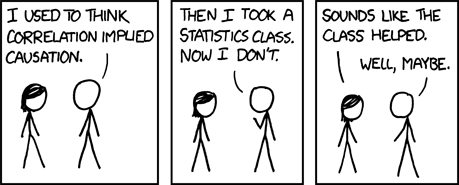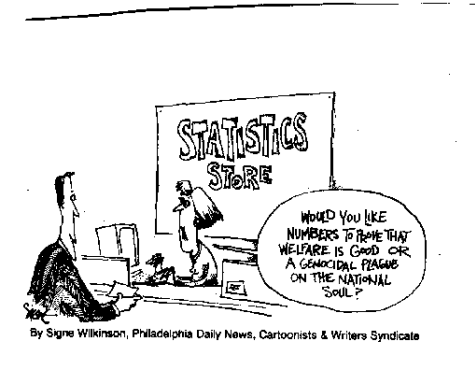SmokingElectricity
Well-Known Member
SMH @ this shit...
http://www.msnbc.msn.com/id/48969102/ns/health-mens_health/#.UE5mAo1lQt0
Dude, it's your junk! Pot linked to testicular cancer
Some blunt advice for the young, male fans of marijuana: You may want to kill that joint and clutch your crotch -- self-check style, that is.
Scientists at the University of Southern California say they've detected a link between recreational marijuana use and a greater chance among males in their early teens through their mid-30s of contracting a particularly dangerous form of testicular cancer -- non-seminoma tumors, according to a small study published today online in CANCER, a peer-reviewed journal of the American Cancer Society.
"The group that is at risk for developing these tumors is overwhelmingly young men. They should be looking and paying attention to changes in their testicles anyway," said Victoria Cortessis, one of the study's authors and an assistant professor of preventive medicine at the Keck School of Medicine of USC in Los Angeles.
Further, the fellas' weed intake "might be something they would want to mention to their usual health-care provider."
Cortessis and her colleagues analyzed the self-reported recreational drug use of 163 young men who had been diagnosed with testicular cancer. Among those patients who acknowledged indulging in pot, just over half (51 percent) told medical researchers they puffed or ingested cannabis more than once per week.
The team then compared the illegal drug histories of those 163 afflicted men with the lifestyle habits of 292 healthy men of the same age and ethnicity. Inside the data, they saw that men who had used marijuana recreationally were twice as likely to develop mixed-germ-cell tumors, including the deadlier non-seminona tumors. (The 292 unaffected men were "sampled" from the same neighborhoods in which the ill men had lived at the time of their diagnoses, Cortessis said.)
"These tumors usually occur in younger men and carry a somewhat worse prognosis" than other types of testicular cancer, the study reported. Moreover, the USC findings confirmed two previous reports in CANCER of an apparent link between marijuana use and cancer of the testicles, the researchers noted.
Still, the rate of such cancers occurring in men is relatively low: There is a lifetime risk of slightly more than 1 percent, Cortessis said.
"The truth is, the vast majority of men who develop testicular germ-cell tumors survive them. There's still a small proportion that don't. Those guys tend to have non-seminonas, unfortunately," Cortessis said. "But also, non-seminomas require more extensive treatment, including radiation and chemotherapy.
"We're not concerned only with preventing non-seminomas so that the malignancy doesn't harm the man, but we're also concerned about the later health effects for men that may be related to the more-aggressive therapy" (such as chemo), she added.
So, why would weed wield such woes for some cojones in some dudes?
The USC scientists are unsure exactly what internal glitches marijuana may trigger that could cause cancer. But they speculate that the process may begin in the body's endocannabinoid system, which is the cellular network that responds to the active ingredient in marijuana. That same system has been shown to be vital in the formation of sperm. The study was was funded by the National Cancer Institute.
The researchers also invested a few words of their report to speak directly to the young men living in the 17 states where medicinal marijuana is legal, stating: "The findings suggest that the potential cancer-causing effects of marijuana on testicular cells should be considered not only in personal decisions regarding recreational drug use, but also when marijuana and its derivatives are used for therapeutic purposes."
At medical marijuana dispensaries in Washington state and California, that stance not surprisingly drew swift retorts.
At the Harborside Health Center in Oakland, the proprietors read the USC study on Friday afternoon, then promptly emailed to NBC News a news link to a recent tudy in Madrid in which cannabis was found to be a cancer fighter.
"The LA study stands in contrast to several recent studies which have found that cannabis actually has cancer fighting properties," said Steve DeAngelo, co-founder of Harborside. "The LA study is reporting a correlation, as opposed to a causal connection between cannabis use and the cancers. It is a well-established scientific principle that correlation does not equal causality.
"I would also note that the sample size is quite small," DeAngelo added, "and the size of the control group is double that of the cannabis users."
Two states to the north, at Seattle's Northwest Patient Resource Center, chief executive John Davis argued that any person taking therapeutic drugs should know that all of those otherwise beneficial substances carry some health hazards.
"And with a lot of them," Davis said, "the risk is death.
"If you're using (marijuana) medicinally, you should understand the risks and the benefits, just like any other therapy," Davis added. "Marijuana, in general, is one of the safest therapeutically active substances on Earth. Can it have some side effects? Yeah. But compared to pharmaceutical drugs, those side effects are much less."
http://www.msnbc.msn.com/id/48969102/ns/health-mens_health/#.UE5mAo1lQt0
Dude, it's your junk! Pot linked to testicular cancer
Some blunt advice for the young, male fans of marijuana: You may want to kill that joint and clutch your crotch -- self-check style, that is.
Scientists at the University of Southern California say they've detected a link between recreational marijuana use and a greater chance among males in their early teens through their mid-30s of contracting a particularly dangerous form of testicular cancer -- non-seminoma tumors, according to a small study published today online in CANCER, a peer-reviewed journal of the American Cancer Society.
"The group that is at risk for developing these tumors is overwhelmingly young men. They should be looking and paying attention to changes in their testicles anyway," said Victoria Cortessis, one of the study's authors and an assistant professor of preventive medicine at the Keck School of Medicine of USC in Los Angeles.
Further, the fellas' weed intake "might be something they would want to mention to their usual health-care provider."
Cortessis and her colleagues analyzed the self-reported recreational drug use of 163 young men who had been diagnosed with testicular cancer. Among those patients who acknowledged indulging in pot, just over half (51 percent) told medical researchers they puffed or ingested cannabis more than once per week.
The team then compared the illegal drug histories of those 163 afflicted men with the lifestyle habits of 292 healthy men of the same age and ethnicity. Inside the data, they saw that men who had used marijuana recreationally were twice as likely to develop mixed-germ-cell tumors, including the deadlier non-seminona tumors. (The 292 unaffected men were "sampled" from the same neighborhoods in which the ill men had lived at the time of their diagnoses, Cortessis said.)
"These tumors usually occur in younger men and carry a somewhat worse prognosis" than other types of testicular cancer, the study reported. Moreover, the USC findings confirmed two previous reports in CANCER of an apparent link between marijuana use and cancer of the testicles, the researchers noted.
Still, the rate of such cancers occurring in men is relatively low: There is a lifetime risk of slightly more than 1 percent, Cortessis said.
"The truth is, the vast majority of men who develop testicular germ-cell tumors survive them. There's still a small proportion that don't. Those guys tend to have non-seminonas, unfortunately," Cortessis said. "But also, non-seminomas require more extensive treatment, including radiation and chemotherapy.
"We're not concerned only with preventing non-seminomas so that the malignancy doesn't harm the man, but we're also concerned about the later health effects for men that may be related to the more-aggressive therapy" (such as chemo), she added.
So, why would weed wield such woes for some cojones in some dudes?
The USC scientists are unsure exactly what internal glitches marijuana may trigger that could cause cancer. But they speculate that the process may begin in the body's endocannabinoid system, which is the cellular network that responds to the active ingredient in marijuana. That same system has been shown to be vital in the formation of sperm. The study was was funded by the National Cancer Institute.
The researchers also invested a few words of their report to speak directly to the young men living in the 17 states where medicinal marijuana is legal, stating: "The findings suggest that the potential cancer-causing effects of marijuana on testicular cells should be considered not only in personal decisions regarding recreational drug use, but also when marijuana and its derivatives are used for therapeutic purposes."
At medical marijuana dispensaries in Washington state and California, that stance not surprisingly drew swift retorts.
At the Harborside Health Center in Oakland, the proprietors read the USC study on Friday afternoon, then promptly emailed to NBC News a news link to a recent tudy in Madrid in which cannabis was found to be a cancer fighter.
"The LA study stands in contrast to several recent studies which have found that cannabis actually has cancer fighting properties," said Steve DeAngelo, co-founder of Harborside. "The LA study is reporting a correlation, as opposed to a causal connection between cannabis use and the cancers. It is a well-established scientific principle that correlation does not equal causality.
"I would also note that the sample size is quite small," DeAngelo added, "and the size of the control group is double that of the cannabis users."
Two states to the north, at Seattle's Northwest Patient Resource Center, chief executive John Davis argued that any person taking therapeutic drugs should know that all of those otherwise beneficial substances carry some health hazards.
"And with a lot of them," Davis said, "the risk is death.
"If you're using (marijuana) medicinally, you should understand the risks and the benefits, just like any other therapy," Davis added. "Marijuana, in general, is one of the safest therapeutically active substances on Earth. Can it have some side effects? Yeah. But compared to pharmaceutical drugs, those side effects are much less."







 I'm trying to convert him to vapes.
I'm trying to convert him to vapes.